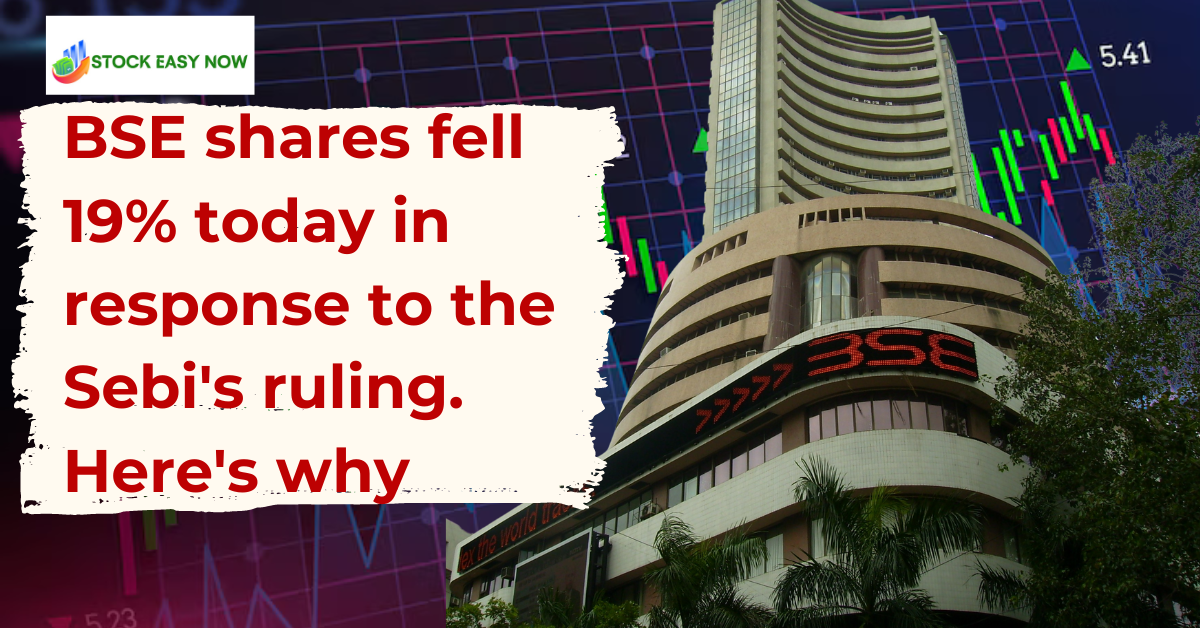BSE Ltd’s stock plunged by 19% in Monday’s trading session following a directive from the market regulator Sebi. Sebi instructed BSE to pay regulatory fees based on the annual turnover fee, considering the ‘notional value’ for option contracts. Previously, BSE had been paying regulatory fees based solely on the premium value for option contracts.
Furthermore, Sebi instructed BSE to settle the variance in regulatory fees for previous periods, along with a 15% per annum interest on any outstanding, delayed, or underpaid amounts for each month of delay.
In response to the news, the stock plummeted by 18.63% to reach a low of Rs 2,612.10 on the NSE.
SEBI
BSE stated that it was assessing the validity of SEBI’s claim. “If it is determined that the amount is indeed payable, then the total differential SEBI regulatory fees for past periods, spanning from FY 2006-07 to FY 2022-23, would amount to approximately Rs 68.64 crore plus GST, inclusive of interest totaling Rs 30.34 crore,” BSE mentioned in a filing to the NSE.
BSE mentioned that the deadline for paying the SEBI regulatory fee for FY24 was April 30. The company has already settled the amount of Rs 1.66 crore plus GST, which was payable based on premium turnover. If the company is found liable, the differential SEBI regulatory fees for the year could be approximately Rs 96.30 crore plus GST, it highlighted.
Stock exchanges must remit regulatory fees to the board within 30 days after the conclusion of the financial year. The regulatory fee rate is determined by the annual turnover of a stock exchange. The term ‘annual turnover’ refers to the total value of transactions occurring within the financial year.
Also Read: Yes Bank Q4 results
Sebi stated that for options contracts, the ‘annual turnover’ is calculated based on the notional value of the option contracts for regulatory fee payment purposes. Sebi also pointed out that the regulatory fee paid by BSE for FY2006-07 was for a quarter rather than for the entire financial year. Since the inception of derivatives contracts, BSE, including the former United Stock Exchange which merged with BSE in FY15, has been paying regulatory fees based on the annual turnover, considering only the premium value for option contracts instead of the notional value.
Disclaimer: Stockeasynow provides stock market news for informational purposes only and should not be construed as investment advice. Readers are strongly encouraged to consult with a qualified financial advisor before making any investment decisions.





